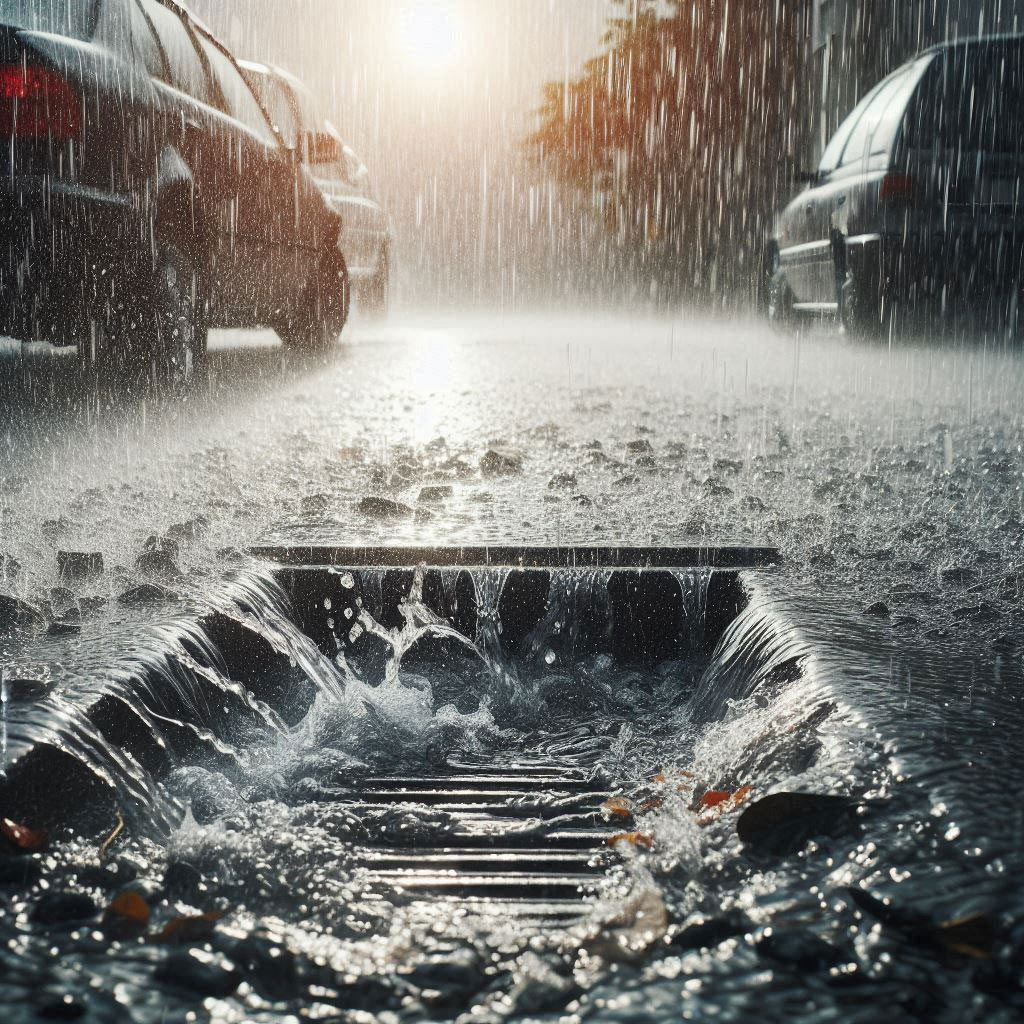As climate change intensifies, the management of rainwater and floodwater is becoming a critical issue for municipalities worldwide ...
As climate change intensifies, the management of rainwater and floodwater is becoming a critical issue for municipalities worldwide. In response, many regions are introducing new taxes and charges aimed at controlling and funding flood prevention efforts. These measures often target property owners based on the amount of non-permeable surface on their land, such as roofs, driveways, and other hard surfaces like patios. If you're a property owner, here's what you need to know about these impending changes and how you can mitigate potential charges on existing infrastructure or new projects you are planning.
The Push for Rainwater and Floodwater Management
Cities and towns are increasingly looking to fund their water management systems through taxes that reflect the impervious surfaces on properties. These surfaces, which include roofs, asphalt driveways, and concrete patios, do not allow water to soak into the ground, leading to increased runoff and potential flooding. By taxing these surfaces, local governments aim to encourage property owners to reduce runoff and invest in sustainable drainage solutions.
Global Examples
Germany: The city of Berlin has implemented a rainwater tax that charges property owners based on the size of their roofs and other non-permeable surfaces. This policy encourages residents to install green roofs and other permeable solutions to mitigate charges.
United States: Cities like Philadelphia and Portland have introduced stormwater fees calculated based on the impervious surface area of properties. These fees fund infrastructure improvements and encourage sustainable water management practices.
Canada: In Ontario, municipalities like Mississauga have adopted stormwater charges to address increased rainfall and runoff issues. Property owners are charged based on the amount of non-permeable surface on their properties.
United Kingdom: In London, proposals for charges are currently being studied and recommended for urgent implementation.
Preparing for Potential Charges
With the likelihood of similar taxes being introduced in more regions, property owners should consider taking proactive measures to manage rainwater on their land. Here are some strategies to mitigate these charges:
Install Land Drains:
Land drains can help manage water runoff by directing it away from buildings and allowing it to soak into the ground. These systems can reduce the amount of surface water and help prevent flooding. Dakota offer an extensive range of Channel (Trench) Drains and Catch Basins which can easily be linked to perforated piping for water dispersal into the ground.
Use Permeable Surfaces for Paths, Driveways and Parking Areas:
Replacing traditional hard surfaces with permeable materials like gravel grids for driveways, parking areas and paths can significantly reduce runoff. These surfaces allow water to pass through, replenishing groundwater supplies and reducing the burden on stormwater systems. Dakota offers ranges of grass and gravel grids, designed for use in a wide variety of applications ranging from pedestrian areas right through to heavy duty uses like truck parks, etc.
Consider Alternative Solutions for Paved Patios:
Wooden or composite decking can be a good alternative for patio areas, allowing rainwater to pass though the spaces between planks and drain into the ground below. Permeable concrete pavers and other composite material solutions that allow water to pass through are also increasingly becoming available. Dakota offers a wide variety of product solutions for the support and leveling of all types of decking, as well as complete supported floor systems for creation of raised walkways and patios which can be surfaced with coverings like artificial grass, exterior carpeting or any other suitable permeable paving.
Green Roofs:
Installing a green roof can absorb rainwater, provide insulation, and reduce runoff. Green roofs are particularly effective in urban areas where green space is limited. Dakota offers a wide range of pedestal and other support systems suitable for mounting and supporting green roof installations.
Examples of the spreading tax charges
The links below provide some examples of the spread of stormwater and rainwater taxes around the world :
"Rainwater tax in Germany" - This is a special levy on homeowners comprising a considerable amount of over a hundred euros per year.
"The Property Owners Guide to Stormwater Utility Fees" - Stormwater fees are a new charge in over 2000 cities across America.
"Toronto Wants to Manage Storms and Floods—With a Rain Tax” - A plan to charge Toronto homeowners and businesses for paved surfaces on their properties is creating a public backlash.
"Charge home owners who concrete over gardens, Sadiq Khan report suggests" - Study commissioned by London Mayor says paving over lawns can make urban flooding worse.
Conclusion
As the world grapples with the challenges posed by climate change, innovative solutions for managing rainwater and floodwater are essential. Taxes and charges based on impervious surfaces are likely to become more common as municipalities seek to fund necessary infrastructure and encourage sustainable practices. By taking proactive steps now, property owners can not only mitigate potential costs but also contribute to a more resilient and environmentally friendly urban landscape.
Dakota, as a worldwide supplier of drainage related products, is committed to the development of high quality, eco-friendly solutions and is continually working on new developments in water management solutions.

